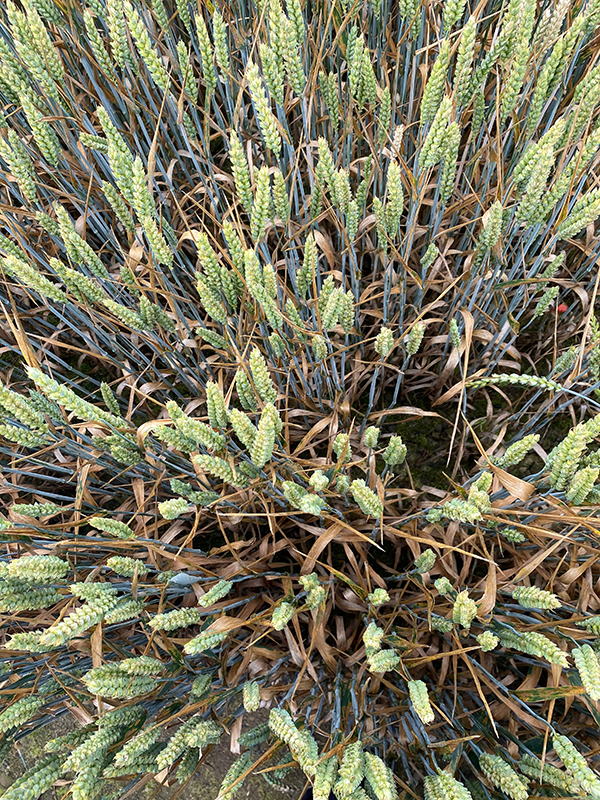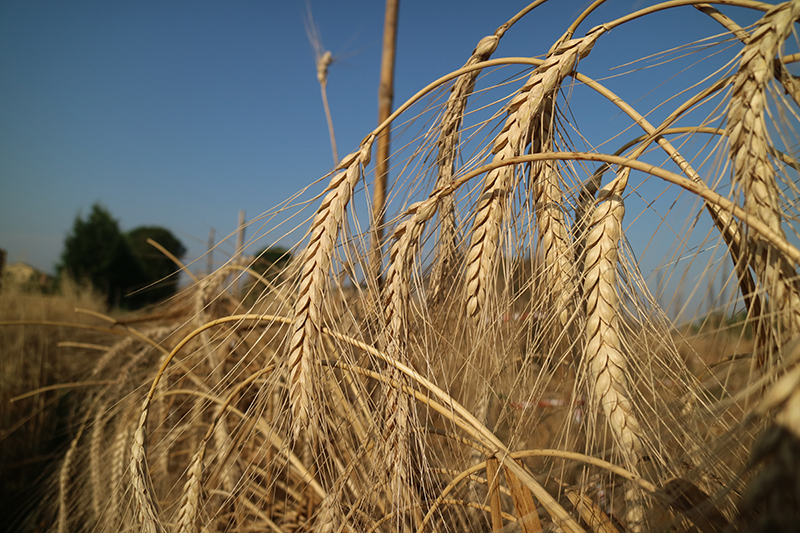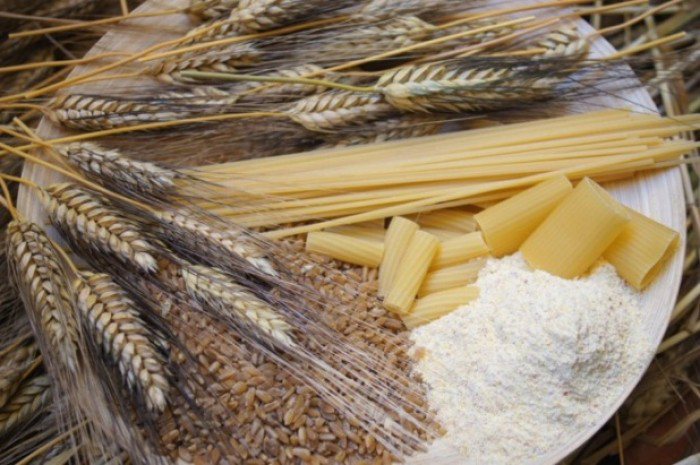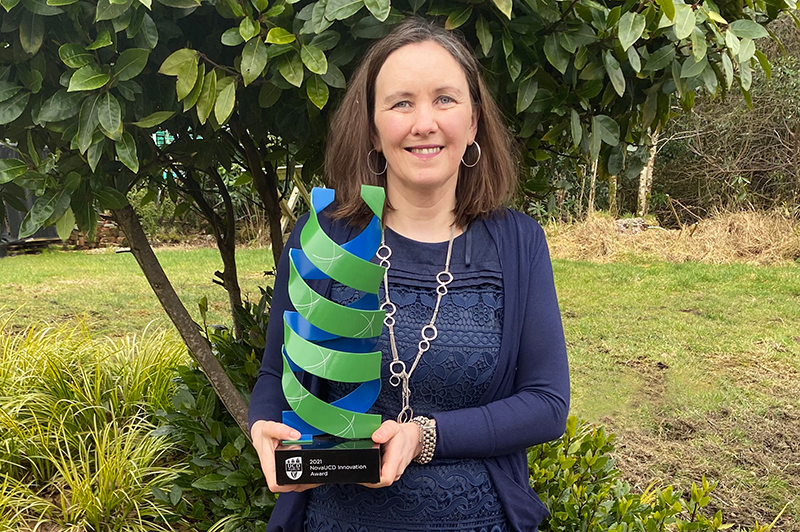Identification and sustainable deployment of wheat genetic diversity to enhance the resilience and security of the European food supply

Source: Dr Cathal McCabe, UCD
Wheat is an essential source of human calories and also provides substantial amounts of proteins, vitamins, fibre and phytochemicals. Much of the wheat grown globally is derived from a narrow genetic base, relative to the genetic resources available within germplasm repositories. Considering climate and legislative challenges, loss of biodiversity, geo-political conflicts, shifting diets and population trends, we need to rethink European wheat production practices and harness wheat’s underutilised genetic diversity to deliver sustainable food supplies into the future. The EU Green Deal challenges farmers to significantly reduce chemical crop inputs by 2030 but will also unlock the opportunity to better maintain and exploit ecosystem biodiversity to support sustainable crop production. By enhancing our understanding of the functional significance of wheat genetic diversity at the ecosystem level, including an in-depth assessment of the complex interplay between wheat and its host ecosystems, we can build new ideotypes that will enhance the resilience of the primary crop production system within the EU. The actions of WheatSecurity will underpin yield stability, mitigating the risk of yield loss from biotic/abiotic stress, exacerbated in many cases due to climate change.

Source: Dr Marco Maccaferri , UNIBO
To achieve this, WheatSecurity will harness genetic resources and agrobiodiversity in order to increase the resilience and sustainability of wheat production in biogeographically and climatically diverse zones across the EU. Building on the wealth of information available regarding the genetic diversity and performance of bread and durum wheat plus related germplasm, we will capitalise on ongoing national and international initiative to select a germplasm panel representing a broad genetic pool covering agroclimatic adaptation and including tetraploid, hexaploid, diverse and elite genotypes. We will cultivate this diverse germplasm panel in sites across Europe under sustainable cultivation conditions (reduced nitrogen, biostimulants, etc.), and we will assess agronomic performance, quality, abiotic and biotic stress resistance/tolerance, as well as interaction with microbial ecosystem components. Based on both demonstrator field trials and contained environment studies, the resilience of diverse wheat germplasm to environmental conditions and to multiple stress responses, alone and in combination, will be assessed and demonstrated to end-users (farmers, breeders, processors, policy makers) based on a combination of traditional and high throughput phenotyping, genome-wide association studies, transcriptomics, and DNA-based microbiome studies of roots, leaves and flowering wheat heads.

Source: Dr Marco Maccaferri , UNIBO
Grain nutritional quality and industrial processing quality will be assessed. Network and association studies will be used to decipher the linkages between plant performance and genotype x environment x management interactions, and we will test the hypothesis that it is possible to support crop-health through genotype x microbiome interactions. These studies will enhance our understanding of the resilience of genotypes and haplotypes and guide the development of ideotypes adapted to specific environmental niches. This project will increase the reference database of phenotypes and functional genotypes for accessions under stressed environments, delineating progenitors that can be used to maximise biodiversity and multi-environment, multi-stress resilience. This research will also demonstrate how we can rapidly expedite the development of cultivars imbued with morpho-physiological features that meet the EU Green Deal ecological objectives (i.e., more resilient under low input and biological input cultivation). Thus, WheatSecurity will improve our understanding of ecosystem functions and enhance our ability to increase the functional genetic diversity base of wheat, thereby enhancing the sustainability of Europe’s food production systems.

Source: Prof Fiona Doohan, UCD
Prof Fiona Doohan
University College Dublin, Ireland
Email: fiona.doohan@ucd.ie
Dr Angela Feechan
University College Dublin, Ireland
Dr Tancredi Caruso
University College Dublin, Ireland
Dr Thierry Marcel
BIOGER INRAE, France
Dr Frédéric Suffert
BIOGER INRAE, France
Dr Valerie Laval
BIOGER INRAE, France
Dr Delfina Barabaschi
Council for Agricultural Research and Economics (CREA), Italy
Dr Francesca Desiderio
Council for Agricultural Research and Economics (CREA), Italy
Dr Elisabetta Mazzucotelli
Council for Agricultural Research and Economics (CREA), Italy
Dr Sophie Bouchet
GDEC INRAE, France
Dr Justin Blancon
GDEC INRAE, France
Dr Clement Debiton
GDEC INRAE, France
Dr Marco Maccaferri
Alma Mater Studiorum – Universta’ di Bologna, Italy
Dr Antonio Prodi
Alma Mater Studiorum – Universta’ di Bologna, Italy
Dr Loredana Baffoni
Alma Mater Studiorum – Universta’ di Bologna, Italy
Prof José Luis Araus
Universtat de Barcelona, Spain
Dr Maria Dolors Serret
Universtat de Barcelona, Spain
Dr Shawn Carlisle Kefauver
Universtat de Barcelona, Spain
Dr Calos Guzman
Universidad de Cordoba, Spain
Dr Juan Bautista Alvarez
Universidad de Cordoba, Spain
Dr Paul Shaw
The James Hutton Institute, United Kingdom
Mr Sebastian Raubach
The James Hutton Institute, United Kingdom
Dr Stephen Kildae
Teagasc , Ireland
Dr Ewen Mullins
Teagasc , Ireland
Dr Fiona Hutton
Teagasc , Ireland
Prof Thomas Roitsch
University of Copenhagen, Denmark
Dr Chandana Pandey
University of Copenhagen, Denmark
Dr Ciarán Brennan
CropBiome Limited , Ireland
Dr Gemma Molero Milan
KWS Momont, France
Mr Pascal Giraudeau
SECOBRA Recherches, France
Mr Boris Adam
UE PHACC INRAE, France
Mr Frederic Serre
UE PHACC INRAE, France